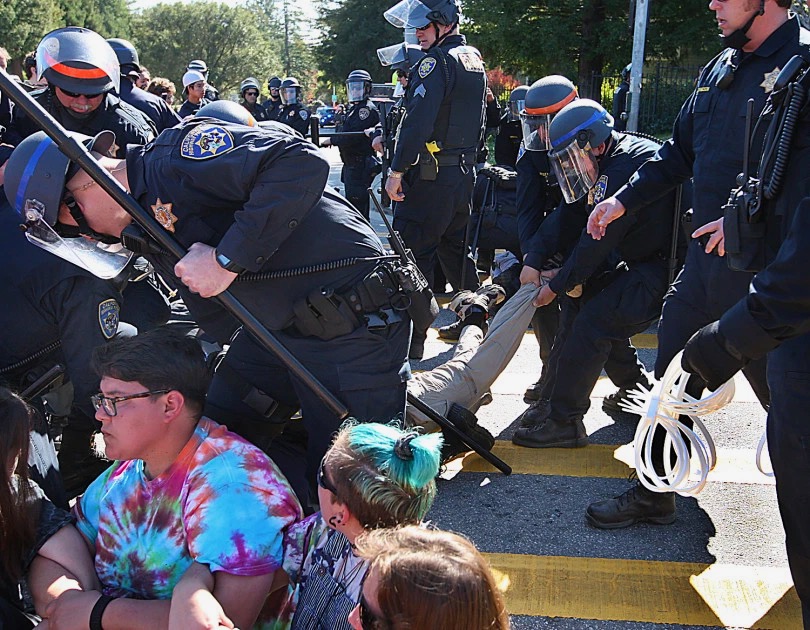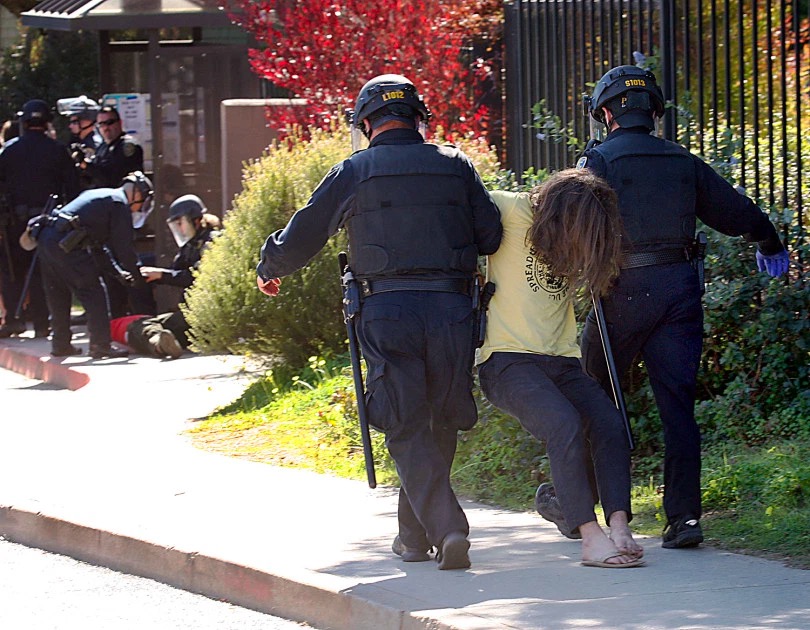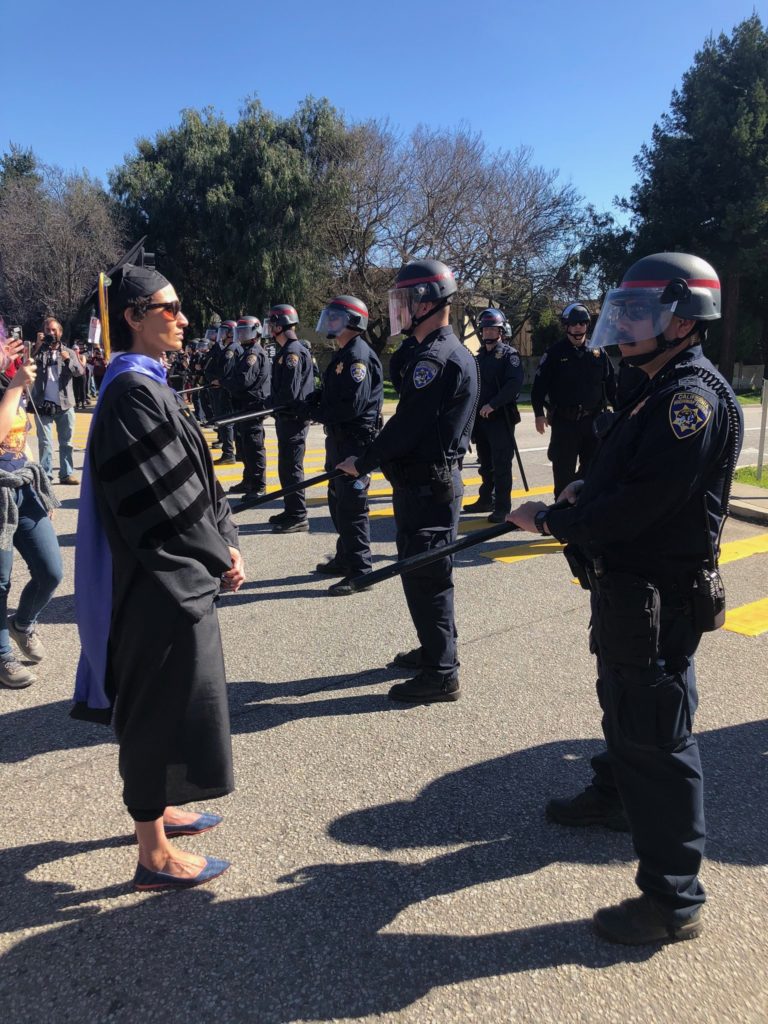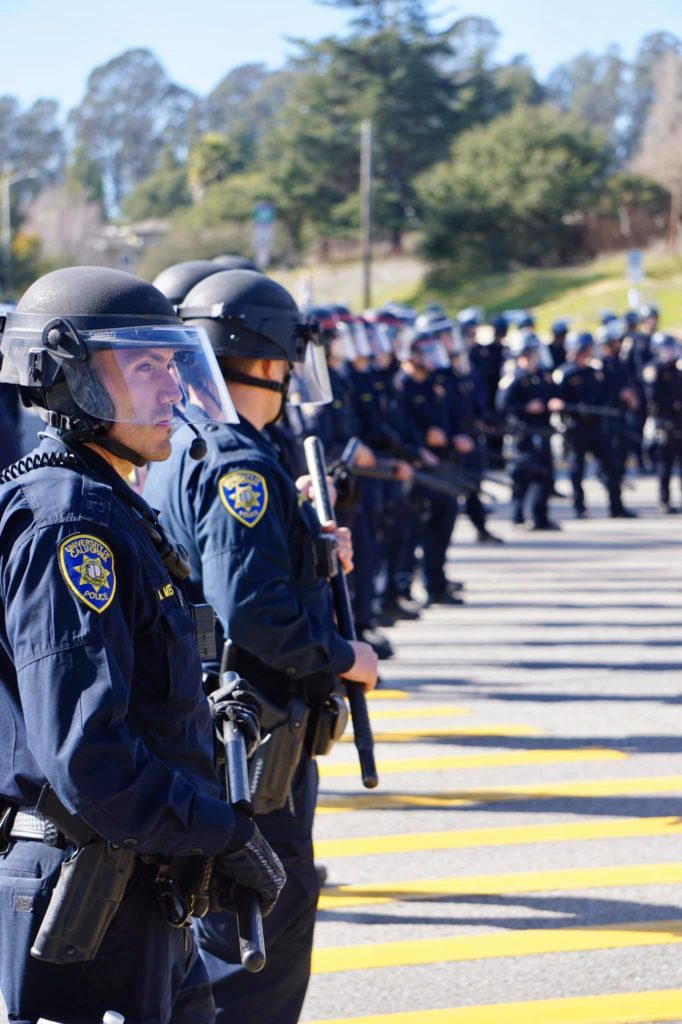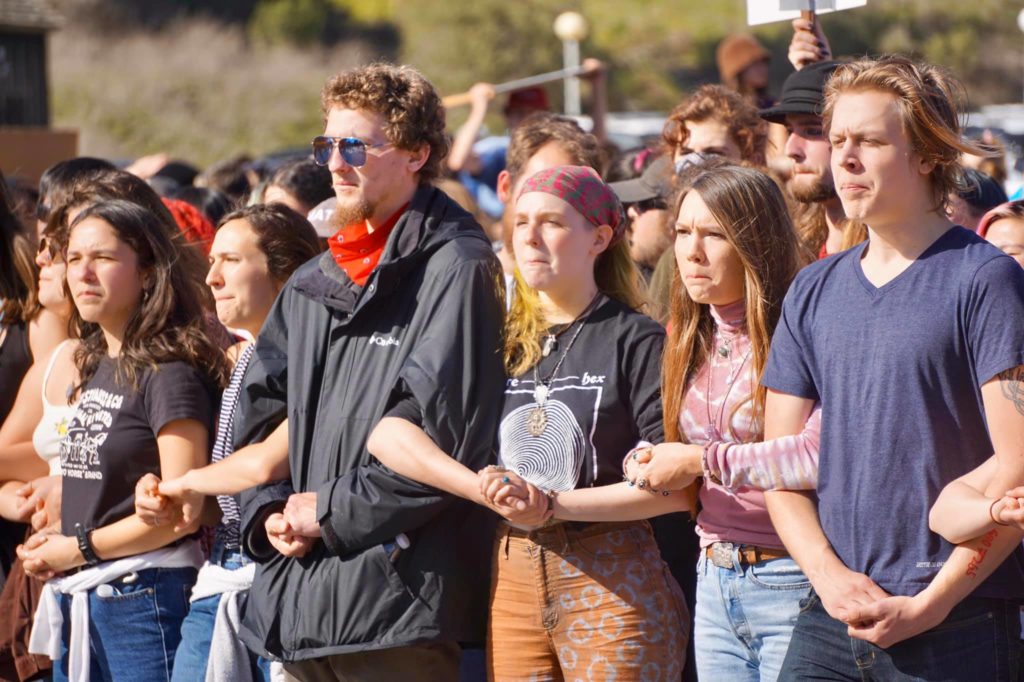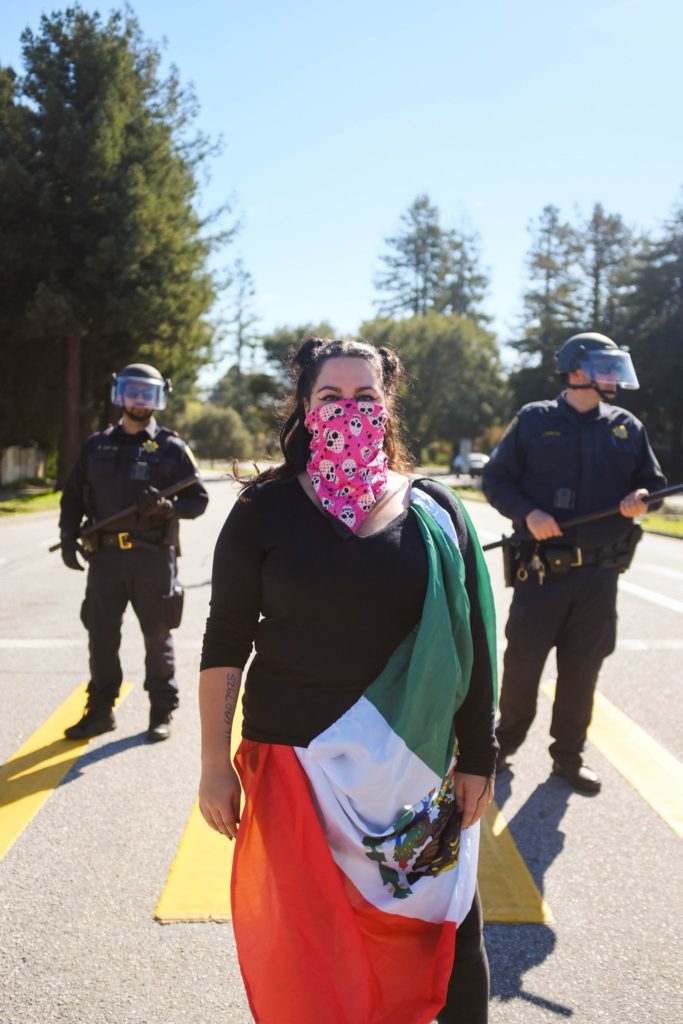****Please Forward Widely****
Dear Colleagues,
We write to share our concern over the two recent communications (“An Open Letter to Faculty, Staff and Students at UC Santa Cruz” from President Napolitano and “Graduate Student Strike Update” from iCP/EVC Kletzer, both dated February 14th) that threaten to dismiss Teaching Assistants who have not submitted Fall grades by February 21st from their Spring 2020 appointments. These two letters raise serious questions about the future of our campus. We cannot deliver high-quality undergraduate education without the face-to-face learning and evaluation provided by the talented and committed graduate student teachers who are themselves vital to UCSC’s nationally and internationally recognized doctoral programs and to our status as a research university. The proposed EVC response to fall grades and the wildcat strike runs directly counter to our values and purpose.
The administration’s proposed action will cause deep and lasting harm to both undergraduate and graduate education at UCSC (well beyond the disruption currently caused by the Teaching Assistants’ strike). In this time of increasing enrollment pressure at the undergraduate level and the necessity for large classes (as well as small research-oriented seminars), faculty cannot mount a quality curriculum that serves undergraduates without the indispensable pedagogical support of graduate student labor. Over the last few years, TAs in nearly every graduate program on campus have received enhanced field-specific training founded in research on effective and inclusive teaching. As a result, TAs have made immeasurable contributions toward closing the equity gaps and ensuring success for an increasingly diverse undergraduate student body.
In addition to damaging undergraduate education, the proposed punitive actions will also severely erode, if not permanently damage, the doctoral mission of the University of California. UCSC has been on a strong trajectory of doctoral growth and it boasts a diverse and robust set of programs. All of them stand to suffer as a result of the proposed actions. Striking graduate students have already been negatively impacted by their rent burden and low wages; to dismiss them from their Spring 2020 positions only compounds the financial reasons that led to the wildcat strike in the first place. We fear that many graduate students will simply be unable to continue their education as a result. This year’s cohort of prospective graduate students may also be reluctant to accept offers, causing further damage to individual departments, undergraduate curricula, and UCSC’s strong and growing reputation as a major research university.
As faculty, we are further concerned that the
proposed measures constitute an infringement of the principle of shared
governance, which grants Senate faculty the right to oversee curriculum
and courses of study. Regents Standing Order 105.2 states: “The Academic
Senate shall authorize and supervise all courses and curricula.” The
action threatened by the administration would have profound effects on
our courses and curricula, constituting a change in the delivery of
instruction. As such, it is not a step that should be taken without
thoughtful and extensive Senate consultation and consent.
Graduate
students, with the support of undergraduates, lecturers, staff, and
faculty, have drawn attention to a long-standing problem. The current
crisis offers us an extraordinary opportunity to come together as a
community to reimagine the future of UCSC and, through honest and frank
dialogue, construct the paths that will return UCSC to its place as an
institution dedicated to knowledge in the service of social
transformation.
It is our belief that even faculty who do not support the strikers and their tactics ought to be deeply concerned about the implications of these letters for the quality of education on this campus. We hope you will join us in insisting on faculty consultation and shared governance in this matter. We also invite you to affirm the critical importance of graduate Teaching Assistants to the educational mission of the University of California and to urge systemwide and local campus accountability, compassion, and creative problem-solving.
We hope you will attend the Academic Senate Meeting on Wednesday, February 19, to raise some of these concerns with campus leadership.
Sincerely,
The Faculty Organizing Group (FOG)


